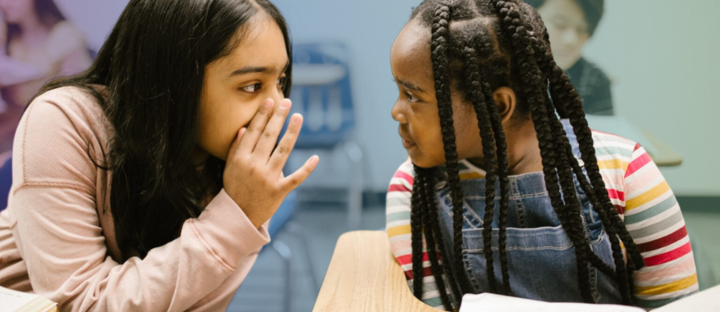For parents, sending a child to school comes with a unique set of worries: Will my child make friends? Are they struggling academically? Are they being challenged? Are they being bullied?
There is no doubt about the drastic differences in curriculum and school environment across the decades, but one thing always remains (and evolves): bullying. Bullying has always existed to some degree in schools. So, what can be done if a child is being bullied at school? First, let’s define bullying.
What Is the Definition of School Bullying?
According to the ACLU, bullying is defined as “any gesture or written, verbal, or physical act that is reasonably perceived as being motivated by any actual or perceived distinguishing characteristic and has the effect of causing harm to a student or damage to the student’s property, or reasonable fear of harm or property damage, or of insulting a student or group of students in a way that substantially interferes with the orderly operation of a school.”
This harm does not need to be physical. Emotional and psychological harm are just as damaging. Studies show that students who are bullied often experience long-term mental health issues, including anxiety and depression, that may continue into adulthood. According to data from StopBullying.gov, about 19% of students aged 12 to 18 reported being bullied during the school year. Other studies, including findings shared by PACER’s National Bullying Prevention Center, estimate that up to 30% of students may be involved in bullying at some point during their school career. These statistics underscore the lasting impact bullying can have, not only on individual students but on society as a whole.
Understanding the Long-Term Impact of Bullying
Students who are bullied often carry the effects with them well into adulthood. These long-term consequences can include:
- Chronic anxiety or depression
- Low self-esteem and self-worth
- Difficulty forming relationships
- Academic underachievement
- Physical health problems linked to stress
When bullying goes unaddressed, it doesn’t just harm individuals; it affects school culture, academic outcomes, and public health.
What Are New Jersey Schools Doing to Prevent Bullying?
Schools in New Jersey are legally required to adopt anti-bullying policies. These policies are typically available on each school’s website and are part of a statewide initiative to improve student safety and wellbeing.
What Is the HIB Law in New Jersey?
New Jersey’s anti-bullying law is known as the Harassment, Intimidation, and Bullying (HIB) policy. This legal framework requires schools to:
- Implement official anti-bullying guidelines
- Investigate reported incidents in a timely manner
- Offer education and training to students and staff
- Provide support to both victims and aggressors
The Week of Respect
As part of New Jersey’s prevention efforts, schools participate in the Week of Respect each October. This annual campaign is designed to foster empathy, kindness, and inclusion among students through activities, discussions, and educational programs.
How to Report Bullying in New Jersey Schools
Always report any instances of bullying, whether they occur on or off school property, including online (cyberbullying). Schools are obligated to investigate all reports of bullying and take appropriate action.
The school will assess whether the incident qualifies as bullying under HIB guidelines and, if so, will apply remediation and support strategies confidentially for all individuals involved.
For more details, parents can consult their school’s anti-bullying specialist or find guidance on the New Jersey Department of Education website.
How Parents and Schools Can Work Together to Prevent Bullying
Preventing bullying is most effective when schools and families work as a team. A collaborative approach helps ensure that every child is protected and supported. Below are several proactive strategies that parents and educators can implement.
Educate Students on What Bullying Looks Like
When students understand what bullying is—and what it isn’t—they are better equipped to recognize and report it. Clear definitions help students identify patterns and feel more confident seeking help.
Provide Kids With Safety Tips
Encourage children to stay near trusted friends or adults when they feel unsafe. In serious situations, make sure they understand when it’s appropriate to involve school staff or even law enforcement. Teaching situational awareness is key to prevention.
Teach Kids How to Stand Up for Themselves and Others
Give children tools to speak up in safe, effective ways. Strategies might include:
- Creating a distraction to interrupt the bullying
- Speaking firmly and clearly to the aggressor
- Seeking out an adult immediately
- Supporting peers who are being targeted
Help Kids Identify a Trusted Adult
Encourage children to connect with at least one trusted adult—whether a teacher, counselor, coach, or parent—who they can go to for support. Knowing they have a safe space to turn to is empowering.
Keep Communication Open With Regular Check-Ins
Parents should talk regularly with their children about their social experiences at school. Ask how their classmates treat them and if they’ve noticed others being bullied. Try to get a sense of the overall climate in their classroom and on campus.
Preventing Cyberbullying in New Jersey Schools
In today’s digital world, bullying doesn’t always stop at the school gate. Cyberbullying—bullying that occurs via text, social media, or other online platforms—is a growing concern.
Here are a few ways to help prevent cyberbullying:
- Monitor your child’s online activity in age-appropriate ways
- Encourage respectful behavior on digital platforms
- Teach kids not to share passwords or personal content
- Remind students to report inappropriate messages or threats
- Familiarize yourself with your school’s policies on digital behavior
Creating a Safer School Environment for All Students
The best way to stop bullying is to prevent it before it starts. Building a positive school climate, one where students feel safe, valued, and respected, is essential. When schools, families, and communities work together, bullying becomes less likely to occur and easier to stop when it does.

